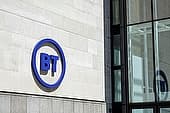Home > Broadband > News > Ofcom's war on 'up to' speed ads... and why it lost
Ofcom's war on 'up to' speed ads... and why it lost
Consumers have long complained that the use of the phrase 'up to' in broadband speed adverts is misleading.

In early 2011, the communications regulator Ofcom finally said that it agreed: 'up to' adverts should go.
Almost a year later, though, 'up to' remains. Why was Ofcom ignored? And what can the regulator do next?
The 'up to' problem
Ofcom research into broadband speeds has consistently shown that actual broadband speeds fall far short of the speeds providers advertise.
The average broadband speed in November/December 2010, for example, was 6.2Mb - less than half (45%) of the UK's average advertised broadband speed of 13.8Mb.
That's despite the fact that, overall, speeds improved in the UK by 5% for the year to December 2010.
Looking closer
Looking closer, however, we can see that those averages disguise speeds that are even slower than advertised for some groups.
According to the same research, the average download speed received for 'up to' 20/24Mb ADSL packages was 6.2Mb, 29% of advertised speeds.
Just 14% of customers on 'up to' 20Mb or 24Mb ADSL services received average download speeds of over 12Mb, while 58% received average download speeds of 6Mb or less.
In the previous July's survey almost two thirds (65%) had an average download speed of 8Mb or lower, while only 2% received average download speeds of more than 14Mb.
Ofcom's solution
Ofcom Chief Executive Ed Richards has said: "It is important that the rules around broadband advertising change so that consumers are able to make more informed decisions based on the adverts they see, and that advertisers are able to communicate more clearly how their products compare to others in the market."
Typical speed range (TSR)
The regulator suggested that the best way to do that would be with a typical speed range (TSR).
Typical speed descriptions take a more nuanced approach to speeds, they'll say things like:
- Half of our customers receive at least xMb
- 10% of our broadband users will receive under yMb or
- All our users currently receive average speeds between xMb and yMb
However, Ofcom's consumer panel advised against ISPs advertising both an 'up to' speed and an average.
"The current approach...is causing widespread scepticism amongst consumers," said Anna Bradley, the chair of Ofcom's consumer panel.
"Consumers are likely to see the two descriptors as contradictory, which could lead to further confusion and scepticism."
The CAP response
But Ofcom's panel doesn't have control of advertising standards.
Instead it had to wait for the Committee for Advertising Practice (CAP) to issue guidelines on broadband speeds, which it did in September 2011.
Disappointingly for Ofcom and a variety of consumer groups, though, the new rules didn't include a ban on 'up to'.
There's likely to be a few reasons for that.
First, CAP have compromised - albeit in a way Ofcom wouldn't approve of - by ruling that advertisers should show a typical speed range in cases where a "significant proportion of an ISP's customer base" will receive lower than advertised speeds.
Second, BT have argued in the past that broadband providers serving the most rural communities will come out with lower average speeds.
The move would give providers a disincentive to serve rural areas, the telecoms giant said.
Indeed, it's worth noting that Virgin Media, which has campaigned for average speed ads primarily serves urban areas with fibre, a considerable advantage on this measure.
Ofcom did have a solution to this: make ISPs submit averages about households that are about the same distance from exchanges but, presumably the ASA did have to consider how speed averages would be collated and independently verified to prevent companies from, ahem, bending the truth.
Third, as we noted above, next generation fibre services far outstrip current generation services and effectively solve the 'up to' problem.
Virgin Media's 100Mb service (full details) typically delivers 90-96% of the advertised speed.
BT's Infinity broadband service (full details) delivers 78% of its 40Mb on average and has a far faster upload speed than any other package, averaging at 8Mb.
Given the pace the ASA moves at, it's likely that they're just hoping the problem will solve itself.
In practice: the three month rule
The CAP code of practice comes into force in April 2012.
But we don't have to wait that long to see points of tension between the regulator and the CAP's adjudication arm the Advertising Standards Authority (ASA).
For example, to show that it meant business on speeds, Ofcom altered its Voluntary Code of Practice, to which all the major ISPs subscribe, to allow users to switch providers within three months if they're unhappy with the speeds they have experienced.
The new guideline should make switching providers following speed problems much easier but, as simple as it seems on paper, it's unclear how far providers are actually following the rule in practice and the ASA certainly doesn't seem to be taking it seriously.
In December 2011, the ASA refused to uphold a complaint made by a consumer against BT Infinity when BT gave him an online estimate of 29.9Mb but, after signing up, he was informed that the maximum download speed for his address was 17.9 Mb.
It was enough that BT had acted in "good faith", the ASA said.
Get insider tips and the latest offers in our newsletter

We are independent of all of the products and services we compare.

We order our comparison tables by price or feature and never by referral revenue.

We donate at least 5% of our profits to charity, and we aim to be climate positive.
Get insider tips and the latest offers in our newsletter





Comments (1)